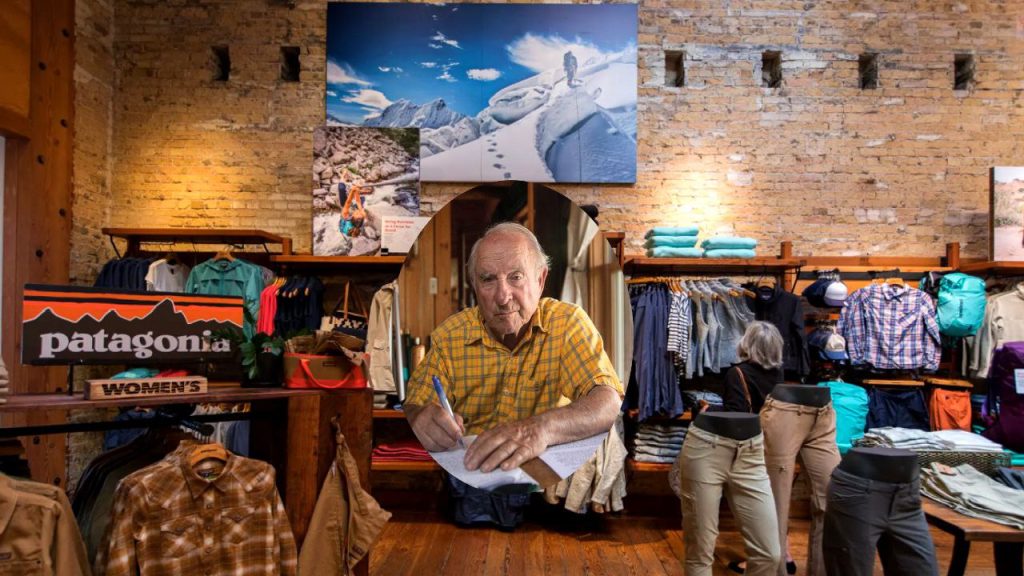Never doubt that a single person can’t change the world, it has been proved numerous times in history and again one person has stood up for a cause that could be more dreadful and disastrous than the 3rd world war i.e., climate change. Let me introduce you to Mr. Yvon Chouinard, an 83-year-old hiking apparel maker, and founder of Patagonia which is worth approx. $3 billion as per New York Times, had donated its businesses to fight against climate change.
How Will This Charity Unfurl: Business Model?
Billionaire Yvon Chouinard along with his spouse and two grown-up children have relinquished their ownership in their multi-billion company Patagonia, started by him in 1973, donating all its business to the Holdfast Collective and the Patagonia Purpose Trust that are fighting the environmental crisis and defending Mother Nature.
All of the voting shares in the business will be owned by the recently established Patagonia Purpose Trust, which also holds a 2% stake. Important corporate decisions, including who sits on the board of directors, will be approved by the trust. They will guide the philanthropy of the Holdfast Collective, a US charity holding a 98% stake in the company and all of the nonvoting stock. The non-voting stock includes economic value but no decision-making power.
Under this structure, Patagonia will carry on with its operations, and all profits which remain after reinvesting in the company will be distributed as dividends to the Holdfast Collective, which it will use to protect nature & fight the environmental crisis while supporting communities in need.
Depending upon the condition of the business, the company plans to contribute about $100 million a year.

Patagonia, The Company
Patagonia, Inc. is an apparel retailer founded by Yvon Chouinard in 1973 and is based out of Ventura, California. It operates stores in 10+ countries globally with factories in 16 countries. Known for its high-end outdoor clothes and multiple ecological sustainability initiatives, Patagonia is a clothes store. Product or service online that are built to last helps the business to expand. In 2018, Patagonia announced that the company would offer merchandise credits for pre-owned clothing.
The company recently declared that they would discontinue using their trademark permanent marking on products since “adding a second non-removable emblem diminishes the life span of a garment, frequently for a lot of minor reasons.” The company has goals to become carbon neutral by 2025.
Patagonia commits 1% of sales each year to grassroots environmental nonprofits, since 1985 through One Percent for the Planet, an organization that was founded by Mr. Yvon along with others. This commitment is part of the company’s business charter, which means it now can’t be changed without the approval of the Patagonia Purpose Trust.
Patagonia is a recognized B Corp as well, which means it has to have a clear social or environmental objective as well as a binding agreement to be accountable and transparent to all stakeholders.
Fortune Of Yuvan Chouinard And Worth Of Patagonia
As per Forbes, Chouinard’s net worth is estimated to be around $ 1.2 Bn but he isn’t happy about it. “I was in Forbes magazine listed as a billionaire, which really, really pissed me off,” he told the NYT. “I don’t have $ 1 Billion in the bank account, I don’t drive Lexuses.”
For Patagonia, the brand has an estimated worth of $3 Bn. In outdoor clothing and gear, it sells more than $1 billion. As per a reputed Data Analyst team, Patagonia’s peak revenue was $209.1 Mn in 2021.
Mr. Yvon Chouinard: The Former Mountaineer
“Earth is now our only shareholder,” Chouinard told in an open letter to announce his family’s decision to donate their entire business to the climate change crisis.
Mr. Yvon is born in Lewiston, Maine, in 1938, and moved to California in 1947 along with his family. In California, he became an accomplished rock climber, spending many years living out of his van at climbing locations. He learned blacksmithing to make some of his climbing equipment and eventually started selling hand-forged mountain climbing gear along with making metal climbing pitons (or spikes to wedge into fissures during mountain climbing) to create points of stability was the start of the era which later turned out to become Patagonia.
“Hopefully, this will influence a new form of capitalism that doesn’t end up with a few rich people and a bunch of poor people,” Mr. Chouinard, 83, said in an exclusive interview with New York Times.









